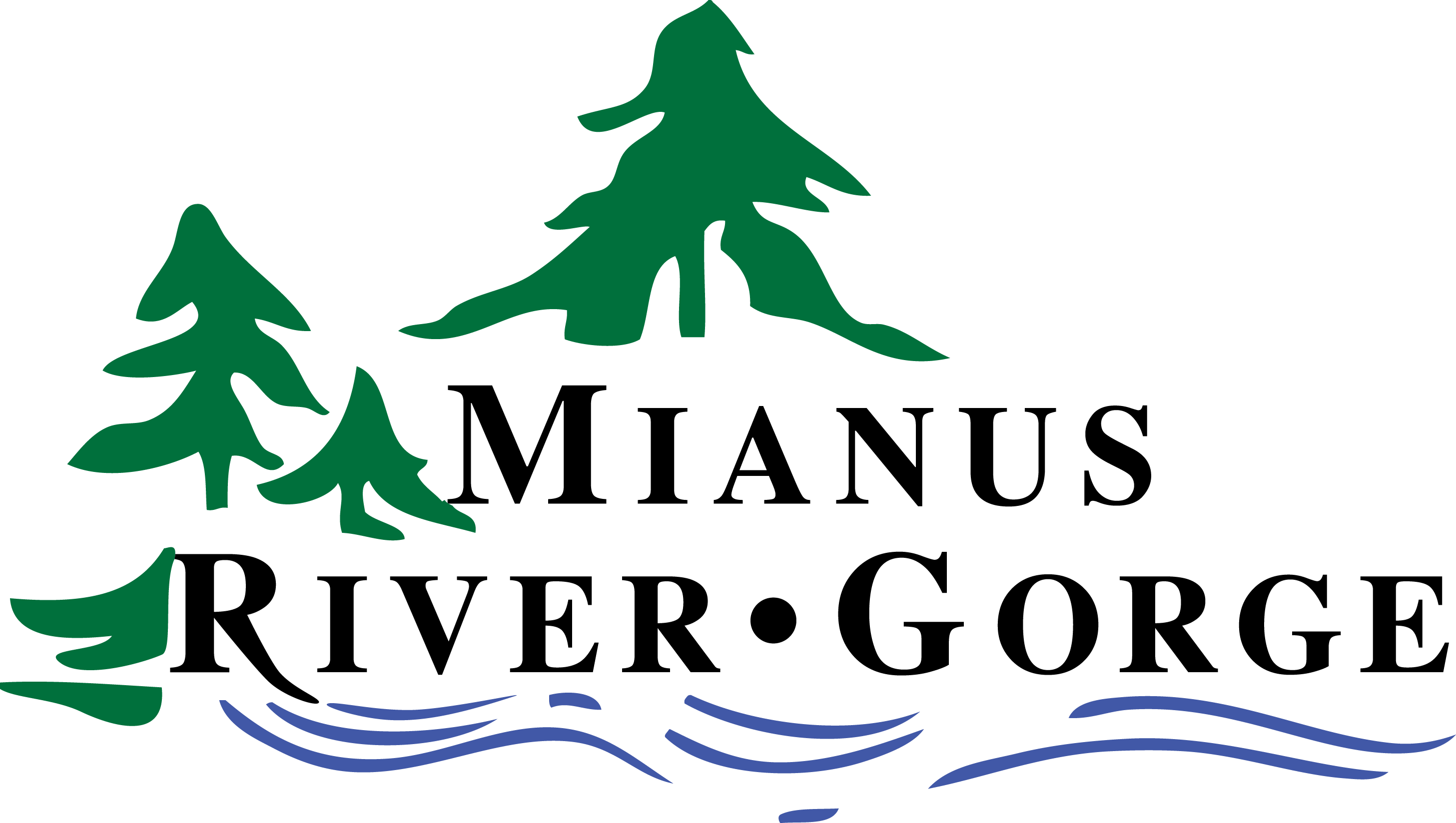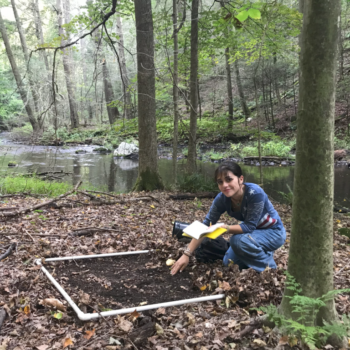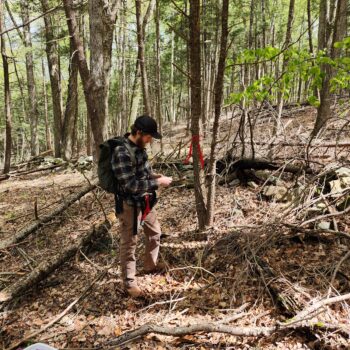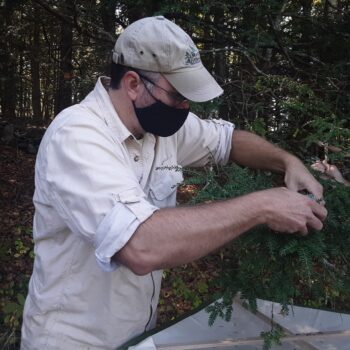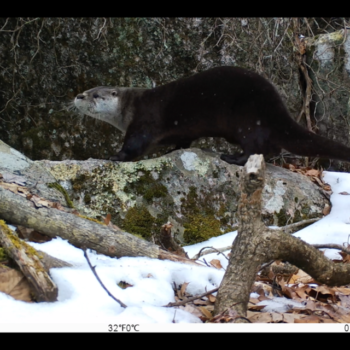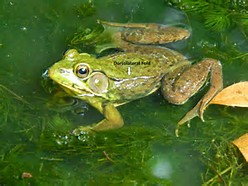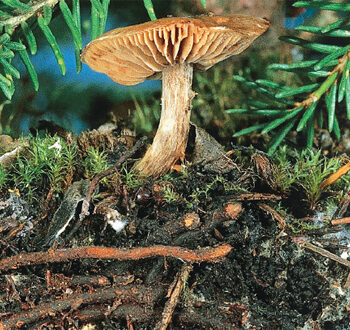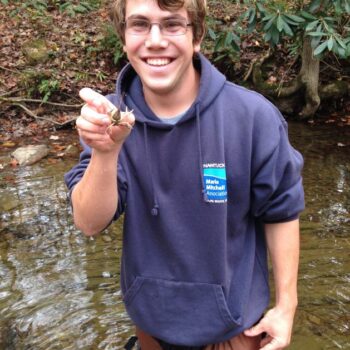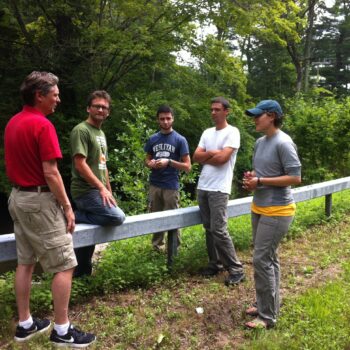July 2024 MRG high-school researchers present their work at the 2024 Northeast Natural History Conference Two of our graduating seniors in our Wildlife Technician Program presented their completed research at the 2024 Northeast Natural History Conference in April. Alex Thompson (Blind Brook HS) gave a lecture on his study of frogs in several wetlands and […]
Category Archives: RAP Researchers
RAP Update
MRG’s Research Assistantship Program (RAP) awards grants to graduate students in ecology, environmental science, and conservation who are doing field studies for their M.S. or Ph.D. The awards offer $10,000 over two years for Master’s degree candidates and $15,000 over three years for Ph.D.’s. We currently have two Ph.D. students in the program, Andy Cortese […]
Hemlocks 2023
MRG inoculated another 1,000 eastern hemlock trees against the hemlock woolly adelgid and hemlock scale in 2023. Click here to view a video that walks you through the hemlock forest. With your help, Mianus River Gorge can continue the important work of preventing the demise of this diverse forest that supports rare wildflowers, over 100 […]
Spotlight on Research and Education, Fall 2022
November 2022 Do trails and recreation impact wildlife? MRG supported projects and co-authored a number of papers this year that examined the relationship of hiking trails, human activity, and wildlife distribution and behavior. The first noteworthy study on this topic was WTP researcher Charlotte Klurfield’s (formerly from Ossining HS) study on hiking and wildlife patterns […]
Spotlight on Research and Education, Winter 2022
Winter 2022 MRG publishes paper on deer management and forest regeneration One of the most pressing issues for land managers in the Northeast is addressing the impacts of super-abundant white-tailed deer. The suburbs and exurbs offer an almost-ideal habitat for deer – with patches of forest to offer food and refuge, large yards and gardens […]
RAP Update
We often speak about our high school research program, the Wildlife Technician Program, but MRG also supports, advises, and coordinates with graduate students doing research on urban/suburban ecology. Since 2007, with support from AE Family Foundation, MRG has offered grants to graduate students exploring questions in the fields of conservation, wildlife management, forest ecology, and […]
Andy Cortese
2019 RAP Award SUNY ESF – Doctoral Candidate Study of mycorrhizae fungi in the forest soil RAP student, Andy Cortese from SUNY ESF, is studying the mycorrhizae fungi in the forest soil in Mianus River Gorge Preserve. The soils have developed a complicated underground network of mycorrhizal fungi that are hundreds of years old (visible […]
Zach Gajewski
2016 RAP Award Virginia Tech – Ph.D. Candidate Distribution and risk of chytrid fungus in amphibian communities Candidate Zach Gajewski, a Ph.D. student at Virginia Tech, was awarded the 2016 Research Assistantship Program grant to conduct his research on the distribution of the pathogenic chytrid fungus that affects frogs and other amphibians. This fungus is […]
Geoff Griffiths
2015 RAP Award SUNY ESF – Ph.D. Candidate Distribution and risk of chytrid fungus in amphibian communities Doctoral student and 2015 RAP recipient Geoff Griffiths (SUNY ESF) launched his research this spring. Geoff and his advisor, Prof Greg McGee, are developing techniques to restore native wildflowers to our younger forests, which are still recovering from […]
Emily Stephan
2013 RAP Award SUNY ESF – Ph.D. Candidate Sustainable Mianus River Watershed Management Plans developed with Community-based i-Tree Hydro Modeling Through urbanization we have created an “urban biogeochemistry” that involves imbalances in watershed nutrient cycles, polluted waterways, and compromised ecosystems due to adverse interactions between society and the environment. Excess and bioavailable nitrogen is of […]
